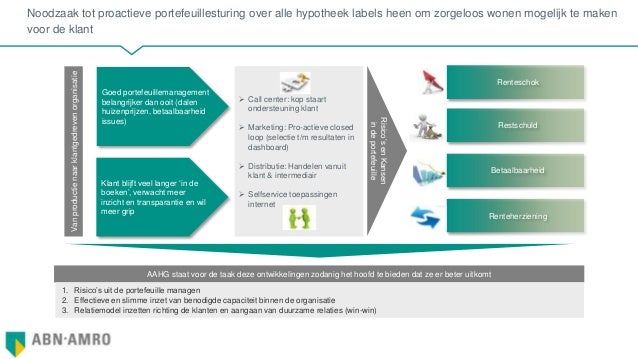Meta's Defense Strategy In The FTC Monopoly Lawsuit

Table of Contents
Challenging the FTC's Definition of the Relevant Market
The core of Meta's defense strategy hinges on challenging the FTC's definition of the relevant market. The FTC likely defines the market narrowly, focusing solely on "social networking." However, Meta aims to broaden this definition.
Argument of Multiple Competitors
Meta will argue that the market isn't limited to social networking but encompasses a broader digital ecosystem. This ecosystem includes various communication platforms, such as messaging apps (like WhatsApp and iMessage), video platforms (like YouTube and TikTok), and online gaming communities.
- Emphasis on competition from diverse players: Meta will highlight competition from TikTok, Snapchat, Twitter, and even traditional communication methods like email and phone calls. The argument is that users easily switch between platforms, demonstrating a lack of Meta's complete market dominance.
- Evidence of user fluidity: Meta will likely present data showcasing user behavior, showing how individuals readily utilize multiple platforms for different communication needs. This undermines the notion of a single, unified "social networking" market.
- Expert testimony on market dynamics: Expert witnesses will provide testimony on the dynamic and evolving nature of digital communication, emphasizing the fluidity of market boundaries and the difficulty of defining a singular, static market.
Innovation as a Defense
Meta plans to emphasize its commitment to innovation, particularly in augmented and virtual reality (AR/VR). This diversification is presented as a counterpoint to allegations of monopolistic behavior in the social media sector.
- Investment in future technologies: Meta will highlight its substantial investments in AR/VR technologies as a demonstration of its focus on broader digital experiences beyond its core social media platforms. This showcases a commitment to future growth beyond potentially monopolistic practices in existing markets.
- Continuous product development: The company will showcase its ongoing development of new features and products across its platforms to paint a picture of a dynamic and competitive environment. This counters the notion of a stagnant market controlled by a single entity.
- Robust R&D spending: Evidence of significant research and development expenditure will be presented to counter claims that Meta is not investing in innovation and is instead relying on its existing market dominance.
Dispelling the Allegations of Anti-Competitive Acquisitions
A significant aspect of the Meta's FTC Monopoly Lawsuit involves acquisitions like Instagram and WhatsApp. Meta's defense will focus on justifying these acquisitions as pro-competitive moves.
Pro-Competitive Mergers & Acquisitions
Meta will argue that the acquisitions of Instagram and WhatsApp introduced valuable features and innovation, ultimately benefiting users and fostering a more competitive and diverse digital landscape.
- Enhanced user experience: Meta will showcase how the integration of these platforms resulted in enhanced features and cross-platform functionality, improving the overall user experience.
- Increased platform reach: Data demonstrating the positive impact of the acquisitions on platform reach and user diversity will be presented. The argument will be that acquisitions increased overall competition, not stifled it.
- Preventing competitor acquisition: Meta may argue that these acquisitions prevented competitors from gaining access to these valuable functionalities, thus maintaining a competitive landscape.
Refuting Claims of Stifling Competition
Meta will aim to demonstrate that its actions, including acquisitions and platform policies, have not suppressed competition.
- Success of competitor platforms: Meta will present a competitive analysis showcasing the growth and success of competitor platforms despite Meta's market presence, highlighting the existence of a vibrant and competitive market.
- Examples of thriving startups: The company will highlight successful startups in the social media ecosystem that have thrived despite competition from Meta, further illustrating a competitive market.
- Rebuttal of predatory claims: Meta will directly address accusations of predatory pricing or exclusionary conduct, providing evidence to refute these claims and demonstrate fair market practices.
Addressing Data Privacy Concerns as Separate from Antitrust Allegations
Data privacy is a frequent criticism of Meta. However, the company will strive to separate these concerns from the antitrust allegations.
Data Privacy as a Distinct Issue
Meta's defense will emphasize that data privacy is a distinct legal issue requiring separate analysis and should not be conflated with antitrust allegations.
- Focus on enhanced security: Meta will highlight its initiatives to enhance data security and user privacy, showcasing improvements in data protection measures.
- Compliance with regulations: The company will demonstrate its compliance with major data protection regulations, such as GDPR and CCPA.
- User control mechanisms: Meta will emphasize user consent and control mechanisms within its ecosystem, reinforcing the idea that user data is managed responsibly.
Conclusion
Meta's defense strategy in the Meta's FTC Monopoly Lawsuit is multi-pronged and complex. It involves challenging the market definition, justifying acquisitions, and separating data privacy concerns from antitrust allegations. The outcome of this case will significantly impact the future of tech giants and the application of antitrust laws in the dynamic digital economy. To remain informed on the ongoing legal battle and its broader implications for the tech landscape, continue following developments related to Meta's FTC Monopoly Lawsuit. Understanding this case is essential for anyone interested in the future of digital competition.

Featured Posts
-
 Benjamin Kaellman Tuo Maalivireensae Huuhkajien Riveihin Kasvua Kentillae Ja Sen Ulkopuolella
May 21, 2025
Benjamin Kaellman Tuo Maalivireensae Huuhkajien Riveihin Kasvua Kentillae Ja Sen Ulkopuolella
May 21, 2025 -
 Trans Australia Run Is The Current World Record About To Fall
May 21, 2025
Trans Australia Run Is The Current World Record About To Fall
May 21, 2025 -
 Karin Polman Nieuwe Directeur Hypotheken Bij Abn Amro Florius En Moneyou
May 21, 2025
Karin Polman Nieuwe Directeur Hypotheken Bij Abn Amro Florius En Moneyou
May 21, 2025 -
 Us Four Star Admiral Found Guilty The Corruption Case Explained
May 21, 2025
Us Four Star Admiral Found Guilty The Corruption Case Explained
May 21, 2025 -
 Am Bau Architektin Entscheidet Ueber Die Endgueltige Form
May 21, 2025
Am Bau Architektin Entscheidet Ueber Die Endgueltige Form
May 21, 2025
